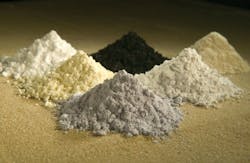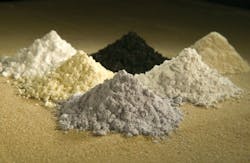Notre Dame professor says U.S. is not as vulnerable as China thinks regarding rare earths
Below are several quotes from the BBC interview.
"Some applications are more critical than others or where the rare earths are more uniquely required so some things would grind to a halt but if you were just constricted and had to prioritized, you could be more flexible and get it to the really essential applications."
"Total defense demand for rare earths is a small fraction of the market; it’s significant and it’s important, but there are lots of ways to get those rare earths"Neither side—China or the US—looks inclined to make concessions and the U.S. has essentially told China in recent policy statements when we’ve justified policies that we’ve taken on national security grounds by saying we’re vulnerable in rare earths. So, if China’s looking for a lever to pull, it makes perfect sense that they would pull this lever."
"People aren’t thinking about how dynamic and resilient markets are and how complex it would be for China to impose economic costs on the U.S. trying to use that rare earths lever."


